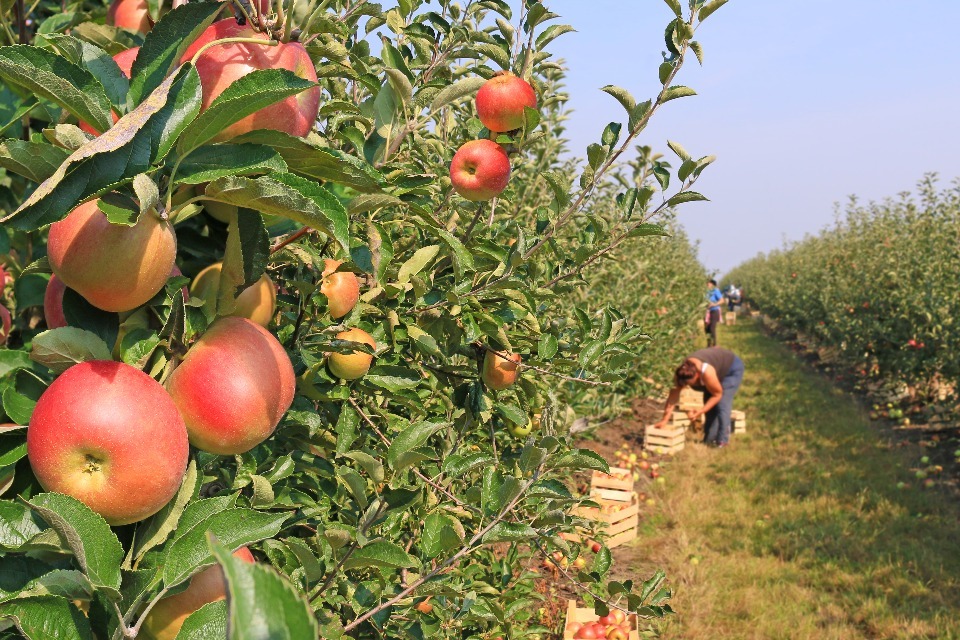A package of measures to provide certainty and stability to farmers and growers in the UK’s horticulture, poultry and sheep sectors has been announced by the government today (Monday 21 October).
Underlining the government’s commitment to the horticultural and poultry sectors, the Seasonal Worker visa route has been confirmed for 2025, with a total of 43,000 Seasonal Worker visas available for horticulture and 2,000 for poultry next year.
This will provide certainty and will help the sector secure the labour and skills needed to bring high quality British produce, including strawberries, rhubarb, turkey and daffodils to market.
Alongside this, the government is taking action to keep costs down and protect poultry farmers from the impact of avian influenza and delivering fairness in the supply chain for sheep farmers by ensuring producers receive a fair price for their livestock through legislation to mandate sheep carcase classification and price reporting.
Food Security Minister Daniel Zeichner said:
This government recognises that food security is national security, and this can only be achieved by supporting food and farming businesses.
Confirming the seasonal worker visa allocation for 2025 gives growers and producers certainty, allowing them to plan ahead and secure the labour they need to grow and thrive.
This package of measures will also support farmers by protecting our poultry producers from the impact of avian flu outbreaks and ensuring fairness in the sheep supply chain.
As well as confirming visa numbers for 2025, Defra has also published the 2023 Seasonal Worker’s Survey report. This is an important part of Defra’s commitment to monitoring the welfare of the seasonal migrant workers who help bring home the horticulture harvest each year.
Conducted in early 2024, the survey shows that the vast majority of respondents (91.0%) reported a positive experience from their time in the UK and 95% expressed a desire to return.
The government is working with industry to improve these numbers further through its farm compliance checks to ensure sponsors are adhering to their duties and undertaking welfare checks on workers, and working with international partners to ensure workers know what work to expect before they arrive and can avoid unnecessary costs and fees.
Measures announced on egg and poultry labelling will help farmers to deal with the impact of future avian influenza outbreaks.
Currently, when mandatory housing measures are introduced to protect birds from the spread of disease, eggs from free-range birds can only continue to be labelled as ‘free-range’ for 16 weeks after the housing order has come into effect – leading to significant costs to industry. The changes will mean that free-range eggs can continue to be labelled as such throughout mandatory housing measures.
This will be brought in through legislation due to be laid on 4 November, and is expected to take effect in January 2025, ensuring a level playing field for UK free-range egg producers against producers in the EU.
A consultation on introducing similar measures for the labelling of free-range poultry is also being launched – proposing the removal of the current restrictions which mean that free range poultry can only be labelled as such for 12 weeks after the introduction of housing measures, and the removal of the need for optional indicator certificates to accompany imported poultry meat.
The government is also taking action to ensure fairness across the food supply chain to ensure producers receive a fair price for their livestock by bringing forward legislation to mandate sheep carcase classification and price reporting, bringing the sheep sector in line with the beef and pork sectors.


